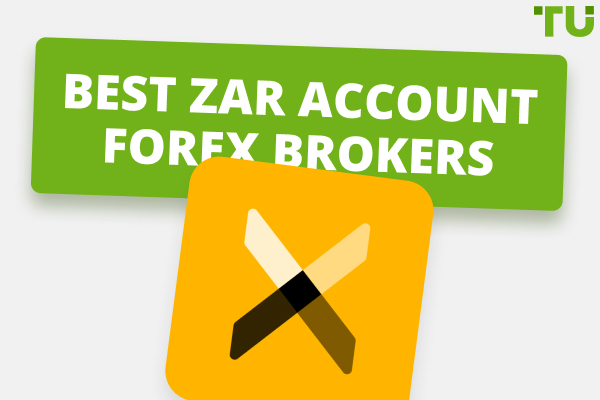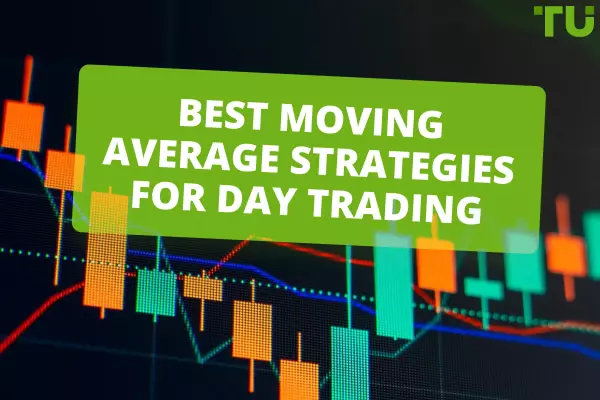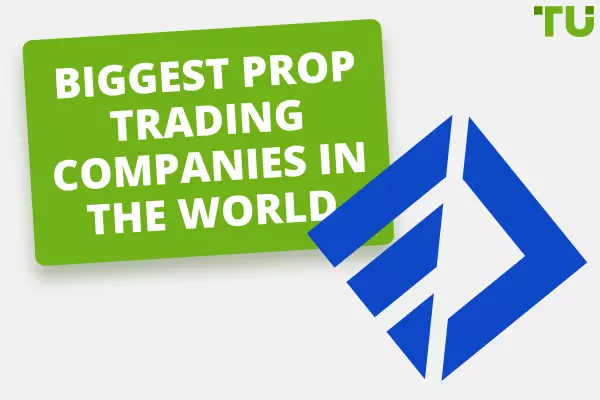Best Forex Brokers with Hedging in 2024

Best Forex broker for hedging - RoboForex
Best Forex brokers that allow hedging in 2024 are:
-
RoboForex: Regulated, Diverse Instruments, Responsive Customer Service
-
Exness: Global Reach, Low Minimum Deposit, Regulatory Compliance
-
IC Markets: Advanced Tools, Tight Spreads, Quick Order Execution
-
Forex4you: Multiple Platforms, Social Trading, Regulated by BVI FSC
-
eToro: Zero Commission, Social Trading, Popular Investors' Program
-
FxPro: Competitive Spreads, No Account Fees, Well-Regulated
-
Admiral Markets: Secure Environment, Free Demo Account, Reliable Customer Support
-
AvaTrade: Excellent Education, Free Deposit/Withdrawal, Low Fees
-
XM: Competitive Withdrawal Fees, Ultra Low Spreads, Comprehensive Education
-
Interactive Brokers: Global Access, Low Costs, Sophisticated Tools
In this article, experts will discuss the best Forex brokers for hedging in 2024, highlighting key characteristics of each broker such as regulation, trading platforms, and customer support. The article also explains the concept of hedging in trading, outlining various hedging strategies and factors to consider when choosing a Forex broker. Additionally, experts address the legality of hedging in Forex, its pros and cons, and whether hedging is profitable. Overall, readers will gain insights into the importance of risk management in trading, the role of hedging in mitigating financial risks, and how to navigate the complexities of Forex trading effectively.
-
Is it legal to hedge on Forex?
Hedging in forex is generally legal but may have restrictions depending on your location and the specific strategies used, such as in the US where some basic hedging practices are prohibited.
-
Can you hedge on MT4?
Yes, you can hedge on MT4 by opening opposite positions on the same currency pair or different pairs to offset risk.
-
What is the difference between netting and hedging?
Netting in forex involves consolidating multiple positions into one, while hedging allows traders to offset risk by taking opposite positions, providing more flexibility in managing market exposure.
Best Forex brokers that allow hedging
1 RoboForex
RoboForex is a brokerage offering access to a wide variety of trading options, including currencies, metals, and stocks, through platforms like MetaTrader 4 & 5 and cTrader. They provide useful tools such as technical indicators and news feeds, along with educational resources like articles and videos. Regulated by the International Financial Services Commission and CySEC, they prioritize safety and security. Their responsive customer service, beginner-friendly demo account, social and copy trading features, and efficient withdrawal process make them a popular choice among traders. Additionally, their implementation of negative balance protection adds an extra layer of security for clients.
2 Exness
Exness is a reputable financial trading platform operating in over 130 countries, adhering to local regulations. Regulated by esteemed bodies such as CySEC, FCA, and FSCA, it ensures trustworthiness and compliance. Offering a wide range of financial instruments including currency pairs, stocks, commodities, and cryptocurrencies, Exness caters to diverse trading preferences. With user-friendly platforms like MetaTrader 4 and 5, as well as low minimum deposit requirements starting from $1 and leverage of up to 1:2000, Exness provides accessible and efficient trading opportunities for traders worldwide.
3 IC Markets
IC Markets is a regulated Forex broker offering advanced tools, tight spreads, and fast order execution. Traders can utilize MetaTrader 4 & 5, cTrader, or IC Markets' web platform. With diverse trading instruments and regulation by the International Financial Services Commission and CySEC, IC Markets provides a secure trading environment. Pros include deep liquidity, flexible platform options, generous demo accounts, and low minimum deposits without account fees.
4 Forex4You
Forex4You is a Forex broker offering CFD trading on a variety of instruments, including currencies, stocks, indices, oil, and gold. Key features include multiple trading platforms (MetaTrader 4 and 5) with advanced tools, four account types catering to different trading styles, and a social trading platform (Share4you) for copy trading. Regulated by the BVI FSC, Forex4You ensures compliance and security with a $10 million insurance policy and advanced encryption protocols. With 24/7 multilingual customer support and comprehensive educational resources.
5 eToro
eToro is a leading online investment platform offering access to over 3,000 financial assets, including stocks, cryptocurrencies, ETFs, indices, currencies, and commodities. With zero commission on long, non-leveraged positions on stocks and ETFs, users enjoy transparent trading with no hidden charges. eToro's social trading feature connects over 30 million traders and investors globally, allowing them to follow, copy, and share insights and strategies. The Popular Investors' Program rewards experienced investors who share their success, while Smart Portfolios offer diversification and automation.
6 FxPro
FxPro is a top Forex and CFD broker, offering access to over 70 currency pairs, precious metals, and CFDs on various assets. With advanced proprietary trading tools, competitive spreads, and no account fees, FXPRO provides a cost-effective and robust trading environment. Regulated by reputable authorities like the FCA, CySEC, FSCA, and SCB, FXPRO ensures a secure and compliant trading experience. Enjoy fast account opening, reliable customer service, multiple trading platforms including MetaTrader 4 & 5, and social trading options for community involvement.
7 Admiral Markets
Admiral Markets, a regulated Forex and CFD broker, offers a secure trading environment with various instruments and platforms including MetaTrader 4 & 5. With tools for technical analysis, market news, and sentiment indicators, traders can make informed decisions. Admiral Markets provides a free demo account, educational resources, and personal account manager support. Swift order execution, reliable customer service, and options for social and copy trading enhance the trading experience.
8 AvaTrade
AvaTrade stands out as a preferred Forex broker, offering excellent educational resources and proprietary platforms like WebTrader and AvaTradeGO. With enhancements like the Guardian Angel plugin and integrated Trading Central services, AvaTrade ensures a comprehensive trading experience. The broker provides a quick and simple account opening process, free deposit and withdrawal options, and low fees for Forex trading. With a well-regulated track record since 2006 and a diverse range of trading instruments, including Forex, CFDs, and cryptocurrencies, AvaTrade caters to traders worldwide.
9 XM
XM is a reputable Forex broker offering competitive withdrawal fees, ultra low spreads, and a low minimum deposit requirement. With comprehensive educational resources, generous bonuses, and adherence to strict regulatory standards, XM prioritizes trader satisfaction and safety. Traders can choose between the popular MetaTrader 4 and MetaTrader 5 platforms, ensuring a seamless trading experience. Overall, XM's user-friendly platforms and competitive fees make it a compelling choice for both new and experienced traders worldwide.
10 Interactive Brokers
Interactive Brokers (IBKR) is a global brokerage firm known for its extensive access to diverse instruments across 150+ markets. Regulated by reputable authorities like FCA, CySEC, FSCA, and SCB, IBKR caters to investors of all levels with low costs and sophisticated tools. Their powerful trading platforms, including desktop, web-based, and mobile apps, offer advanced features such as charting, technical analysis, and options strategies. With consistently low commissions and fees, comprehensive market research, and strong financial standing, IBKR stands out as a top choice for traders worldwide.
What is hedging in trading?
Hedging in trading is a risk management technique utilized by investors to safeguard their investments from potential losses. It involves taking a counteractive position in a related asset to offset the risk associated with another asset. This concept is similar to acquiring an insurance policy for investments. While hedging can protect against downside risk, it does come at the cost of limiting potential profits.
For example, consider owning shares in a tech company and being concerned about a potential market downturn. To hedge this position, one might choose to purchase put options on a stock market index, such as the S&P 500. In the event of a market decline, the value of these put options would rise, helping to counterbalance some of the losses in the tech stock.
In the domain of Forex trading, hedging is a strategy employed to shield one's position in a currency pair from adverse movements. It functions as a form of short-term protection, particularly when traders anticipate news or events that could induce volatility in currency markets.
The primary objective of hedging in Forex is not the complete elimination of risk but rather the limitation of risk to a known amount. Given the inherently volatile nature of the Forex market, diverse hedging strategies can be implemented to mitigate currency risk associated with each position. This risk includes factors such as changing interest rates, inflation levels, and unexpected news.
Hedging in Forex operates by initiating one or more currency trades that counteract an existing position, with the aim of achieving a net-zero balance. Instead of closing the initial trade and re-entering the market later, utilizing a hedge allows traders to keep the first trade active and potentially profit from the second one.
Key characteristics of hedging include:
-
Financial Risk Mitigation - Hedging serves as a strategy for mitigating financial risk, aiding investors in shielding their finances from exposure to potentially risky situations
-
Safeguard against Financial Risks - By balancing the impact of negative events, hedging offers protection against financial risks, preventing substantial losses
-
Diversification - Investors frequently employ diversification as a form of hedging, distributing their finances across various, unrelated assets. This helps mitigate the impact of a decline in one investment through potential rises in others
-
Utilization of Derivatives - Derivatives, represented by contracts whose value is linked to an underlying asset, are commonly utilized in hedging. They ensure that the impact of adverse events is balanced
-
Arbitrage Strategies - Another aspect of hedging involves purchasing a product and promptly selling it in another market for a higher price, with the aim of consistent, albeit modest, profits
Types of hedging trading strategies
-
Hedging with the Same Investment - Imagine you own shares in a company, but you're worried the stock price might drop. So, you might "short-sell" an equal amount of those shares. This means you borrow shares and sell them, hoping to buy them back later at a lower price to return them, thus offsetting potential losses
-
Pair Trading - This involves buying one stock while simultaneously selling another related stock. For example, if you think two stocks usually move together, you buy one and sell the other. This way, you're not as affected by broader market movements
-
Hedging with Options - Options are like insurance for your investments. You can buy "put" options to protect your stocks. If the stock price falls, the put option gains value, helping to balance out your losses
-
Hedging with Futures/Forward Contracts - Futures contracts let you agree on a price for buying or selling assets in the future. By using futures or forwards, you can protect yourself from changes in prices of things like commodities or currencies
-
Hedging with Other Assets - Instead of just stocks, you can invest in things like gold or bonds. These assets often move differently from stocks, so they can reduce your overall risk if one investment doesn't perform well
-
Diversification - This just means spreading your investments across different types of assets, like stocks, bonds, and real estate. If one investment doesn't do well, hopefully, the others will balance it out, reducing your overall risk
How to choose a Forex broker for hedging
| Factors to Consider | Explanation |
|---|---|
Regulation and Security |
Look for brokers regulated by trusted authorities like UK FCA, US CFTC, or CySEC for financial stability. Verify the broker's financial statements and audit reports for transparency and client protection measures. |
Hedging Support |
Ensure the broker allows your chosen hedging strategies and offers competitive fees for hedging instruments. Choose an account type with low minimum deposits and margin flexibility suitable for hedging. |
Trading Platform |
Opt for a reliable platform with fast execution speeds and order types like trailing stops or OCO orders. |
Technology |
Consider brokers with mobile app versions or API access for flexible trading Look for advanced tools like charting features and risk management options. |
Customer Service |
Ensure the broker offers 24/7 multilingual customer support for urgent issues related to hedging. Some brokers provide specialized support for hedging clients, which can be advantageous. |
Additional Considerations |
Be cautious with high leverage and choose brokers offering educational resources on hedging strategies. Explore online communities and reviews to gain insights from other traders. |
Is hedging illegal in Forex?
The legality of hedging in the Forex market depends on various factors, including your location and the specific type of hedging strategy you employ. Generally, hedging in Forex is considered legal in most countries outside the United States. It is widely used by businesses and individuals to manage currency risk effectively. Certain strategies such as using futures contracts, options, or currency swaps for hedging purposes are typically allowed in many regions.
However, restrictions do exist, particularly in the United States. Here, the Commodity Futures Trading Commission (CFTC) prohibits retail traders from simultaneously buying and selling the same currency pair at the same or different strike prices. This restriction effectively bars basic hedging strategies for retail traders. Nonetheless, professional traders and institutional investors may have more flexibility depending on their status and the applicable regulations.
It is crucial to remember a few key points regarding the legality of hedging in Forex. First, regulations concerning hedging can be complex and subject to change. Therefore, it is essential to check with your local regulatory bodies and your Forex broker to ensure compliance with applicable rules and avoid any unintended legal issues. Additionally, while there are restrictions in certain regions like the US, it would be inaccurate to label hedging as "illegal" everywhere. Furthermore, even in regions where hedging is allowed, certain strategies might have limitations, emphasizing the importance of thorough research before implementation.
Pros and cons of hedging
Hedging in Forex is a popular risk management strategy used by traders to protect their investments from market volatility. Like any financial approach, hedging has its advantages and disadvantages, which should be carefully considered before implementation.
👍 Pros
• Risk Mitigation - One of the primary benefits of hedging is its ability to mitigate risks. By taking counterbalancing positions, traders can minimize potential losses if the market moves against them. This is particularly valuable in volatile markets or when protecting profits on existing positions
• Enhanced Flexibility - Hedging strategies provide traders with flexibility to adapt to changing market conditions. They can adjust their positions or hedge different currency pairs based on market trends, enabling them to explore more trading opportunities without exposing themselves to excessive risk
• Reduced Emotional Impact - Knowing that losses are being mitigated by the hedge can help traders remain emotionally detached from their trades. This can lead to calmer decision-making and prevent impulsive actions driven by fear or greed
• Portfolio Diversification - Hedging facilitates portfolio diversification by offsetting risks across different currency pairs. This reduces the overall vulnerability of the portfolio to a single currency or market movement, enhancing its stability
👎 Cons
• Reduced Profit Potential - While hedging limits losses, it also caps potential profits. The positions taken to hedge may offset each other, resulting in smaller gains compared to not hedging at all. This can lead to missed opportunities for larger profits when the market moves favorably
• Increased Complexity - Implementing hedging strategies can be complex, often involving the use of derivatives or understanding correlations between currency pairs. This complexity adds an additional layer of difficulty to the trading process, requiring careful analysis and execution
• Transaction Costs - Maintaining hedging positions can incur additional transaction costs, such as spreads and commissions. These costs can eat into profits, especially for smaller-scale traders, and should be factored into the overall trading strategy
• Opportunity Cost - Hedging may prevent traders from fully capitalizing on favorable market movements. If the market moves in the trader's favor, the hedge will offset those gains, potentially locking them out of larger profits. This opportunity cost should be weighed against the benefits of risk mitigation
Is hedging profitable?
Certainly! Hedging isn't about making profits directly but rather about managing risks and protecting assets from potential losses. Whether hedging is profitable depends on several factors:
Market Conditions
-
If market movements align with the hedged asset, profits might be sacrificed due to the hedge. However, if the market moves against the asset, the hedge can significantly reduce losses
-
In volatile markets, hedging can be more beneficial, while in calmer markets, the costs of hedging might outweigh the benefits
Strategy Implementation
-
Choosing the right hedge tailored to the specific asset and risk exposure is crucial
-
The timing of entering and exiting the hedge greatly influences its effectiveness and potential profitability
Risk Management
-
Additional costs associated with hedging, such as premiums for options contracts or fees for futures agreements, need to be considered
-
Regular monitoring and adjustments to the hedge are necessary to ensure it aligns with risk management objectives
Additional Factors
-
The correlation between hedged assets and liabilities plays a crucial role. Ideally, they should move in opposite directions to offset gains and losses
-
It's essential to remember that hedging is primarily a risk management strategy, not a profit-maximization tool
Our Methodology
Traders Union applies a rigorous methodology to evaluate brokers using over 100 both quantitative and qualitative criteria. Multiple parameters are given individual scores that feed into an overall rating.
Key aspects of the assessment include:
-
Regulation and safety. Brokers are evaluated based on the level/reputation of licenses and regulations they operate under
-
User reviews. Client reviews and feedback are analyzed to determine customer satisfaction levels. Reviews are fact-checked and verified
-
Trading instruments. Brokers are evaluated on the breadth and depth of assets/markets available to trade
-
Fees and commissions. A comprehensive analysis is done of all trading costs to analyze overall cost to clients
-
Trading platforms. Brokers are assessed based on the variety, quality and features of platforms offered to clients
-
Other factors like brand popularity, customer support, education resources are also evaluated
Team that worked on the article
Parshwa is a content expert and finance professional possessing deep knowledge of stock and options trading, technical and fundamental analysis, and equity research. As a Chartered Accountant Finalist, Parshwa also has expertise in Forex, crypto trading, and personal taxation. His experience is showcased by a prolific body of over 100 articles on Forex, crypto, equity, and personal finance, alongside personalized advisory roles in tax consultation.
Dr. BJ Johnson is a PhD in English Language and an editor with over 15 years of experience. He earned his degree in English Language in the U.S and the UK. In 2020, Dr. Johnson joined the Traders Union team. Since then, he has created over 100 exclusive articles and edited over 300 articles of other authors.
Tobi Opeyemi Amure is an editor and expert writer with over 7 years of experience. In 2023, Tobi joined the Traders Union team as an editor and fact checker, making sure to deliver trustworthy and reliable content. The topics he covers include trading signals, cryptocurrencies, Forex brokers, stock brokers, expert advisors, binary options.
Tobi Opeyemi Amure motto: The journey of a thousand miles begins with a single step.




















